Tight muscles? Tired eyes? Itchy scalp? General stress fest?
Yep, your head, neck, and shoulders endure some serious rough-and-tumble on the daily—and sometimes, it takes more than just a deep breath to fix things. It’s time for a wellness check-up… from the neck up.
Coming right up. Together with Head & Shoulders and Walgreens, we tapped a few wellness experts for help zeroing in on these areas. Take note of the mindful practices they depend on, and consider it a head start to full-body wellness.
Head to Shoulders Wellness Check-Up
In Partnership With

SHOP NOW
$12
Clinical Strength Dandruff Defense
Itch Relief Shampoo
Head & Shoulders™
SHOP NOW
$7
Dry Scalp Care
Anti-Dandruff Shampoo
Head & Shoulders™
SHOP NOW
$10
Anti-Dandruff 2-in-1
Shampoo + Conditioner
Head & Shoulders™
Shop Dandruff Solutions at Walgreens
+


scalp
mind
eyes
neck & Shoulders





Scalp
Hidden underneath that head of hair, it’s easy to forget that your scalp is just as worthy of a skin-care routine as your face and body—so a quick head check is always a good idea.
Ashley Yvette Brown, certified scalp-health consultant at Walgreens, recommends taking a mirror moment every few days—and paying special attention to any dryness, oiliness, itching, inflammation, burning, or bumps on the scalp, alongside hair loss, thinning, or breakage.
For scalp treatment and preventative care, she leans on tried-and-true products like Head & Shoulders. “Head & Shoulders offers a product for everyone… clinical [strength] products, 2-in-1s, stand alones, conditioners, scent variations, and products for specific hair and scalp conditions,” she says.
Brown’s recommended scalp routine includes regular checks and massages, eating a balanced diet, gentle washing with reliable products, and checking in with a Walgreens Beauty Consultant any time you have questions.
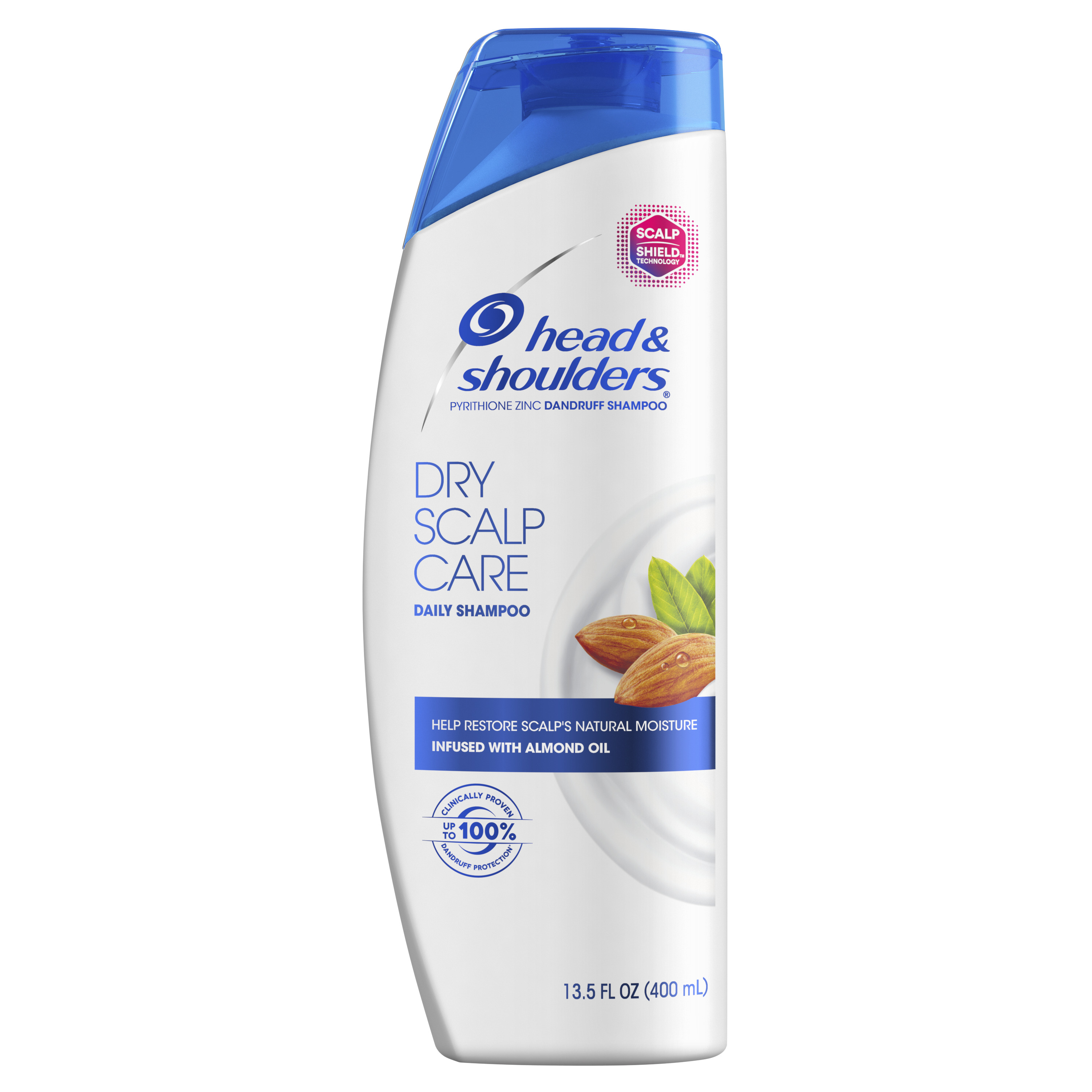
SHOP NOW
$7
Dry Scalp Care
Shampoo
Head & Shoulders™

SHOP NOW
$12
Clinical Strength Dandruff Defense
Itch Relief Shampoo
Head & Shoulders™
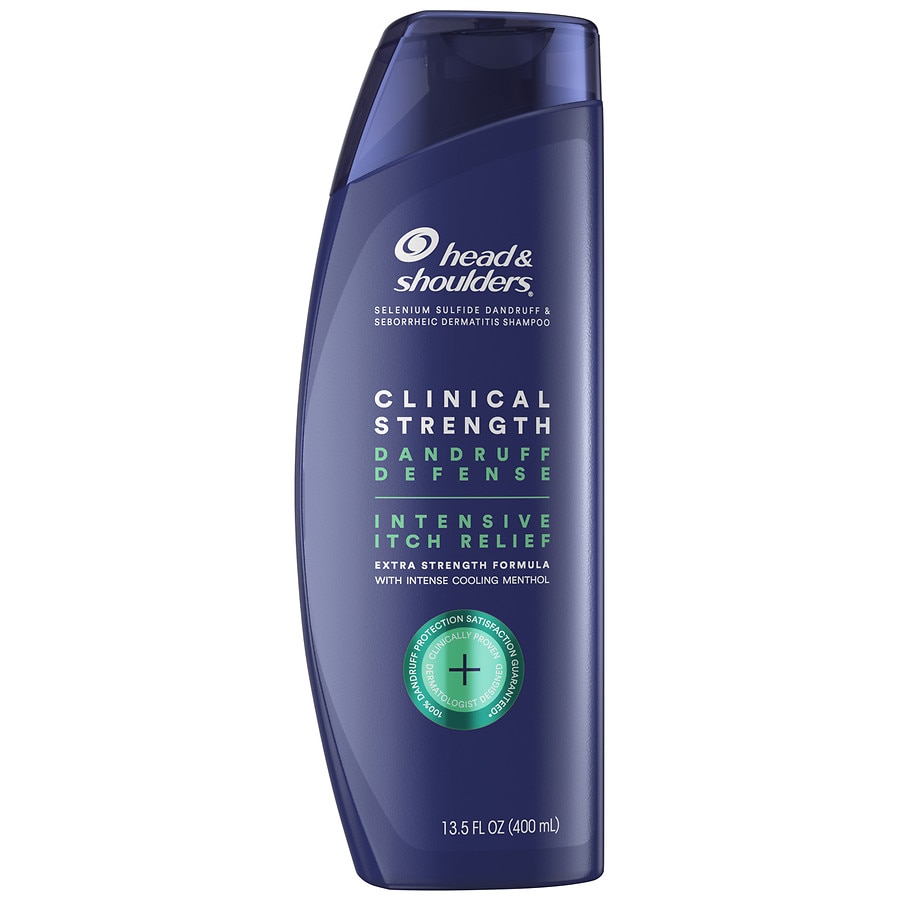
Ever add “stress less” to your to-do list? It’s a good goal, to say the least, but exactly how do you quiet the chaos and ease your anxieties? Meditation is a good place to start, says Josephine Atluri, certified meditation and mindfulness coach.
Meditating slows down your body and breath, which sends a “calm signal” to your brain, she says. According to Atluri, this signal can help to lessen stress, sharpen focus, improve digestive issues, and aid in sleep… and that’s just the beginning.
Ready to get started? Consider Alturi’s tips for newbies: Begin slowly—just one or two minutes a day—to avoid burnout, and try meditating during a daily ritual (like brushing your teeth) to help establish a sustainable habit.
Once you’ve carved out the time, practice 4-2-6 breathing: Inhale through the nose for four seconds, hold for two, and exhale through the nose for six. Try it in the shower alongside a scalp massage—using your fingers or a massaging tool—to help you stay present and at ease.
Mind
“When people think about their overall health, eye care unfortunately isn’t typically at the top of their list,” says Jeffry Gerson, OD, FAAO, and Medical Director at Grin Eye Care. “Most people value their vision, but they don’t typically take the steps to properly care for it.”
A major culprit putting pressure on your peepers? Screen time. Digital strain can result in dry and irritated eyes, blurred vision, and eye fatigue, Dr. Gerson says. And studies show that all this blue light may be contributing to a global increase in nearsightedness.
Dr. Gerson’s tip for a screen wean? Follow the 20-20-20 rule. “Every 20 minutes, shift the eyes to look at an object at least 20 feet away, for at least 20 seconds. Looking into the distance allows the eyes to relax.”
Outside of screen time, Dr. Gerson recommends eye drops to ease persistent dryness, and wearing sunglasses with UVA/UVB protection anytime you’re outside. Exercise and a diet packed with fruits, veggies, and fish are also important for eye health—and don’t sleep on regular eye exams, even if you have 20/20.
Eyes
Feeling extra tense these days? Tightness or tension in your neck and shoulders could be your body begging for some attention, says chiropractor Sarah Cohen. Pain around the spinal cord is often an indication of physical or emotional stress elsewhere.
It can also be an indication of “forward head posture,” Dr. Cohen says.
“As the posture of our neck changes from a normal curve toward forward head posture, it changes the mechanical tension of the spinal cord,” which can create discomfort, headaches, and tightness. And you guessed it—looking at your phone all day is a major contributor.
Dr. Cohen’s go-to tip for relieving tension is warming yourself up first thing in the morning by drinking water and stretching. Practice cat-cow—on all-fours or seated—to pump your spinal fluid, and do shoulder-neck rolls to release your muscles. Just make sure you stay within a comfortable range of motion.
If you spend most of your day at a desk job, be sure to position your screen slightly below eye level to lessen discomfort, and set a reminder to give yourself a daily five-minute neck massage. Essential oils and spa tunes encouraged.
Neck & Shoulders








SHOP NOW
$11
Supreme Nourish + Smooth Conditioner
Head & Shoulders™






SHOP NOW
$11
Supreme Nourish + Smooth Conditioner
Head & Shoulders™
SHOP NOW
$11
Supreme Detox + Hydrate
Shampoo
Head & Shoulders™
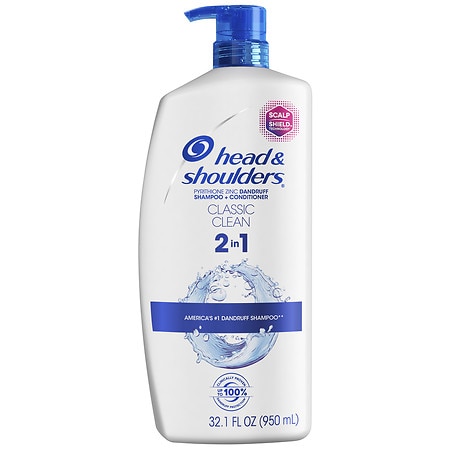


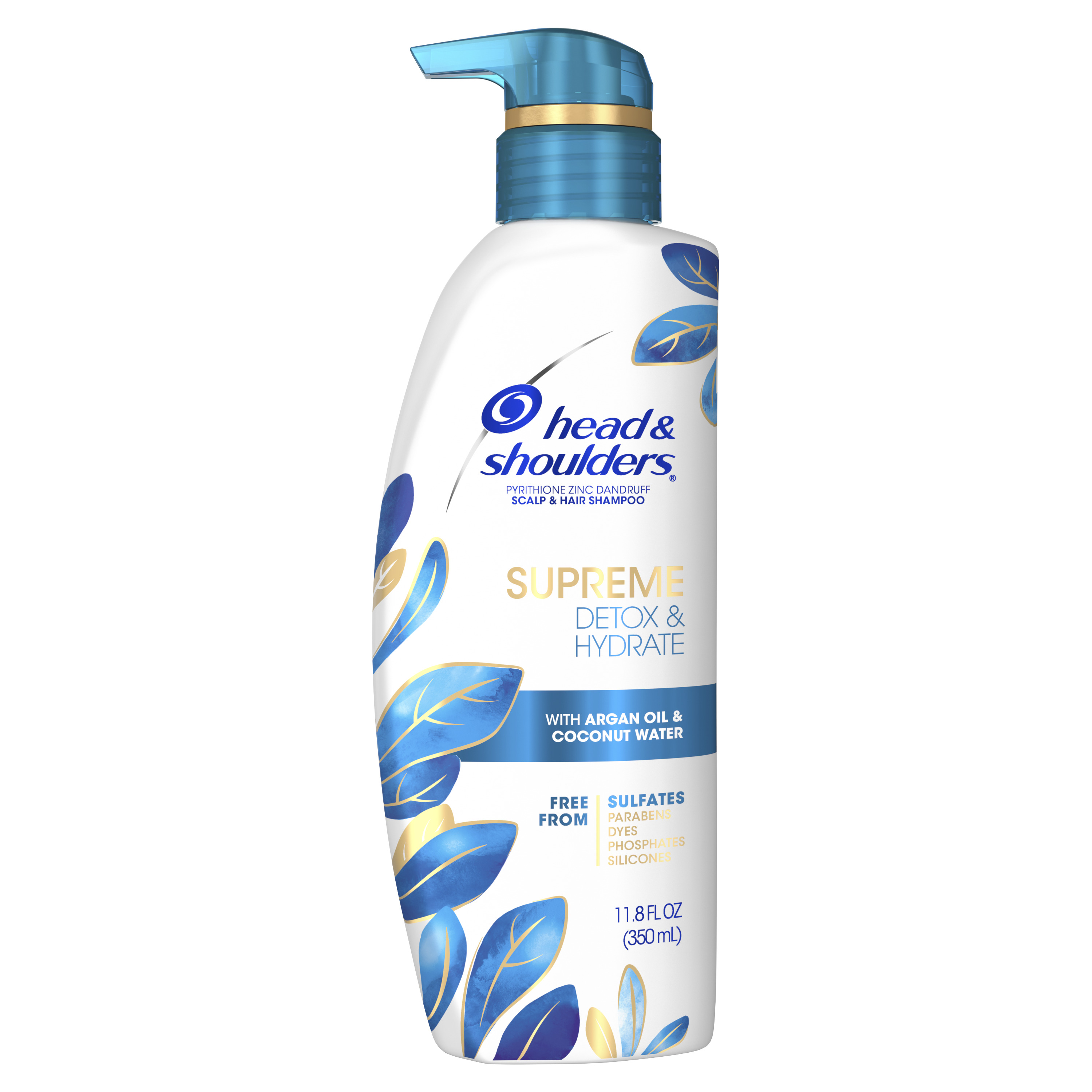
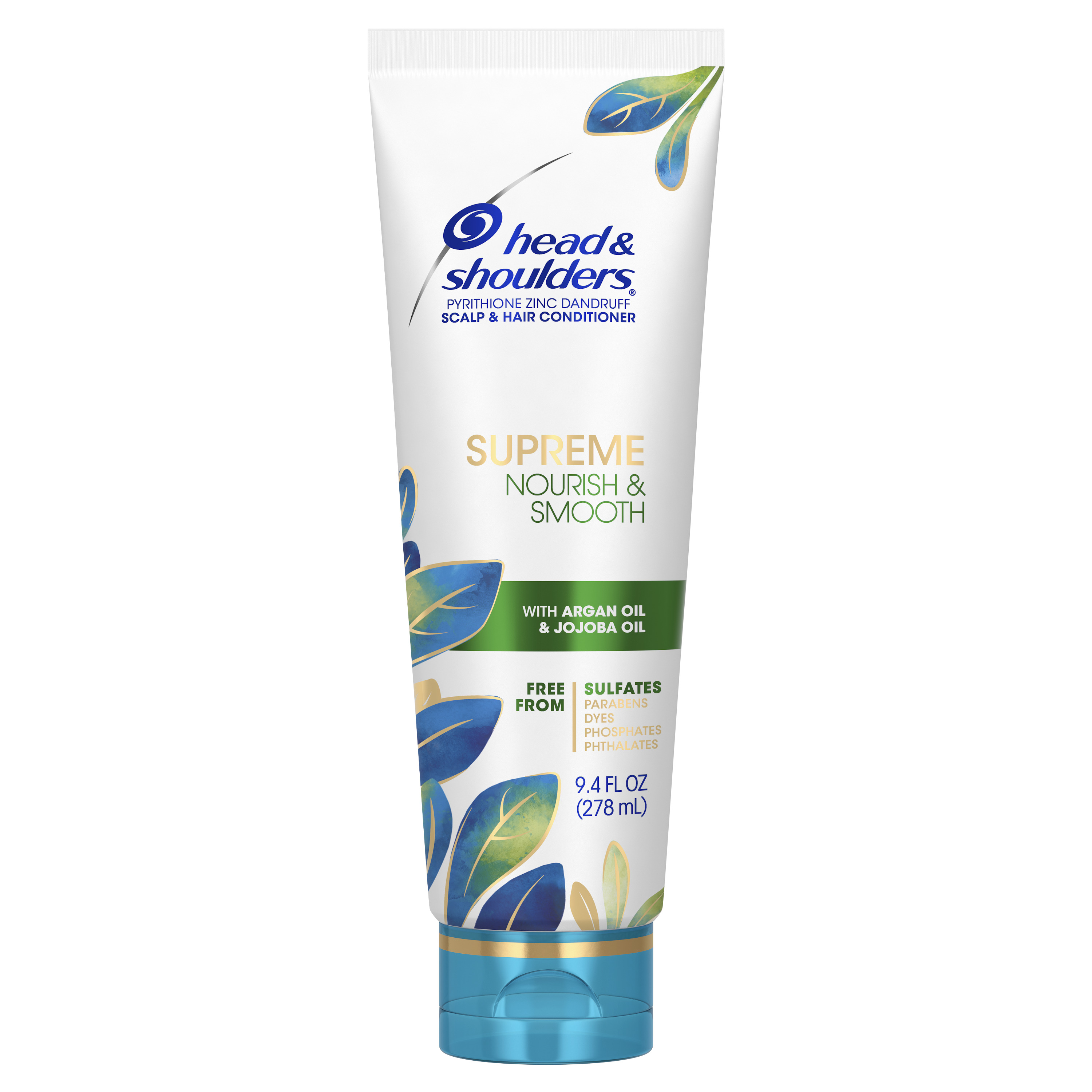



Ever had a good hair day and suddenly felt like you were walking down the street to your own personal hype-up soundtrack? Yep, confidence has a palpable effect on your mood. And if you’ve ever experienced dandruff, you know that the inverse can also be true: The stress of dealing with dandruff can make your confidence take a serious nosedive.
It’s time to lay it all bare—and your stories are helping us do just that. We teamed up with Head & Shoulders to survey Well+Good readers about what it’s like to live with dandruff and how its emotional effect has impacted your lives. We got dozens of heartfelt messages in return, and now? We’re saying it’s time to end scalp shame once and for all.
Hear three of the inspirational stories below, plus get intel on how to care for your scalp for no-stress tresses. Because scalp care = hair care = self care. So, #ShowUsYourScalp.












Feeling extra tense these days? Tightness or tension in your neck and shoulders could be your body begging for some attention, says chiropractor Sarah Cohen. Pain around the spinal cord is often an indication of physical or emotional stress elsewhere.
It can also be an indication of “forward head posture,” Dr. Cohen says.
“As the posture of our neck changes from a normal curve toward forward head posture, it changes the mechanical tension of the spinal cord,” which can create discomfort, headaches, and tightness. And you guessed it—looking at your phone all day is a major contributor.
Dr. Cohen’s go-to tip for relieving tension is warming yourself up first thing in the morning by drinking water and stretching. Practice cat-cow—on all-fours or seated—to pump your spinal fluid, and do shoulder-neck rolls to release your muscles. Just make sure you stay within a comfortable range of motion.
If you spend most of your day at a desk job, be sure to position your screen slightly below eye level to lessen discomfort, and set a reminder to give yourself a daily five-minute neck massage. Essential oils and spa tunes encouraged.
Eyes

“When people think about their overall health, eye care unfortunately isn’t typically at the top of their list,” says Jeffry Gerson, OD, FAAO, and Medical Director at Grin Eye Care. “Most people value their vision, but they don’t typically take the steps to properly care for it.”
A major culprit putting pressure on your peepers? Screen time. Digital strain can result in dry and irritated eyes, blurred vision, and eye fatigue, Dr. Gerson says. And studies show that all this blue light may be contributing to a global increase in nearsightedness.
Dr. Gerson’s tip for a screen wean? Follow the 20-20-20 rule. “Every 20 minutes, shift the eyes to look at an object at least 20 feet away, for at least 20 seconds. Looking into the distance allows the eyes to relax.”
Outside of screen time, Dr. Gerson recommends eye drops to ease persistent dryness, and wearing sunglasses with UVA/UVB protection anytime you’re outside. Exercise and a diet packed with fruits, veggies, and fish are also important for eye health—and don’t sleep on regular eye exams, even if you have 20/20.
Mind


Ever add “stress less” to your to-do list? It’s a good goal, to say the least, but exactly how do you quiet the chaos and ease your anxieties? Meditation is a good place to start, says Josephine Atluri, certified meditation and mindfulness coach.
Meditating slows down your body and breath, which sends a “calm signal” to your brain, she says. According to Atluri, this signal can help to lessen stress, sharpen focus, improve digestive issues, and aid in sleep… and that’s just the beginning.
Ready to get started? Consider Alturi’s tips for newbies: Begin slowly—just one or two minutes a day—to avoid burnout, and try meditating during a daily ritual (like brushing your teeth) to help establish a sustainable habit.
Once you’ve carved out the time, practice 4-2-6 breathing: Inhale through the nose for four seconds, hold for two, and exhale through the nose for six. Try it in the shower alongside a scalp massage—using your fingers or a massaging tool—to help you stay present and at ease.
Scalp

$12
Clinical Strength
Dandruff Defense Itch Relief Shampoo
Head & Shoulders™



SHOP NOW
SHOP NOW
$7
Dry Scalp Care
Anti-Dandruff
Shampoo
Head & Shoulders™



SHOP NOW
$11
Supreme
Nourish + Smooth Conditioner
Head & Shoulders™









